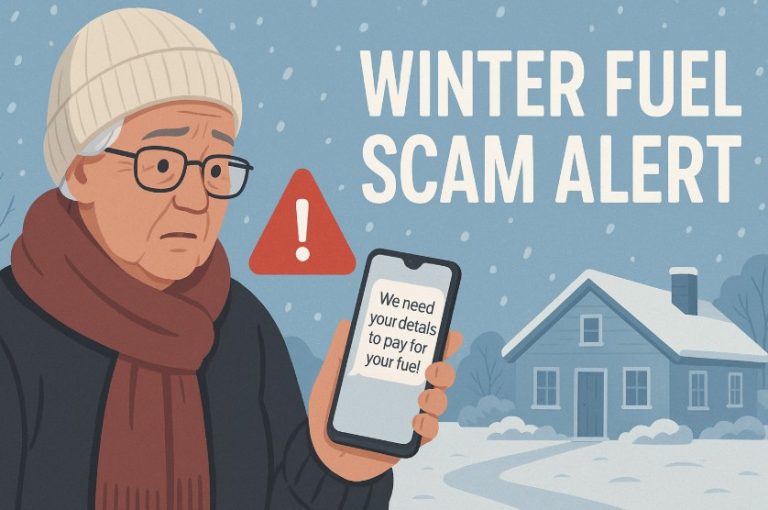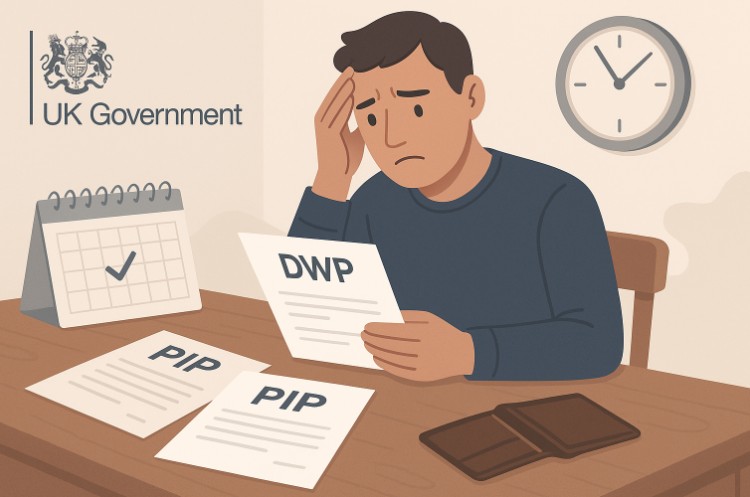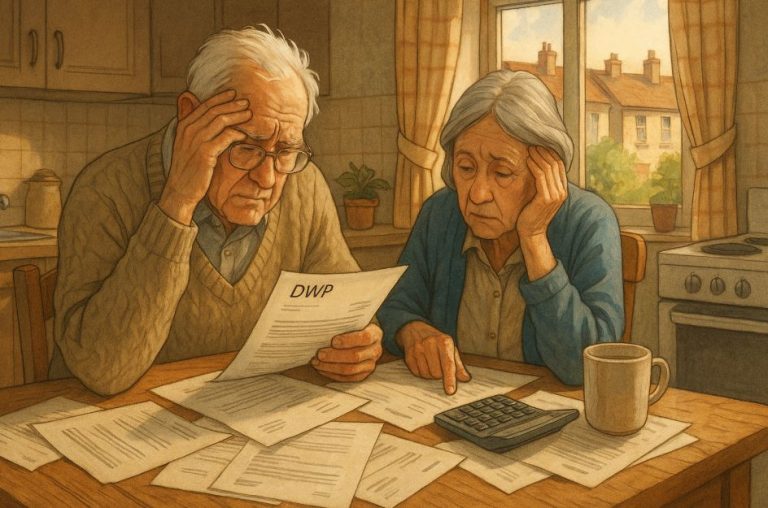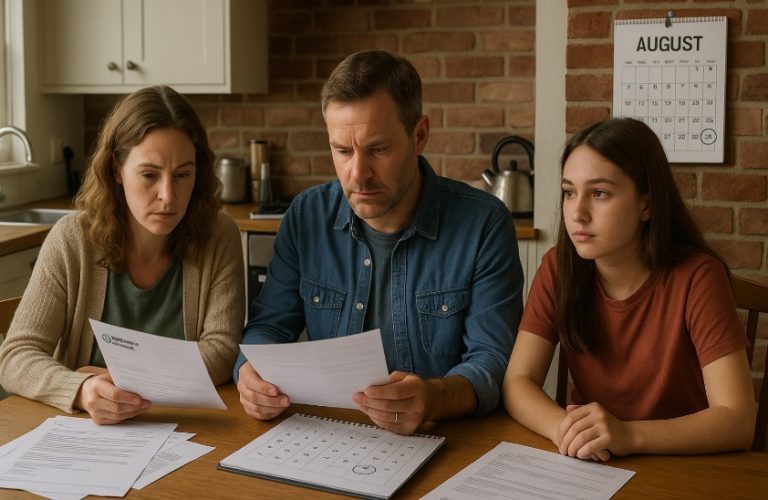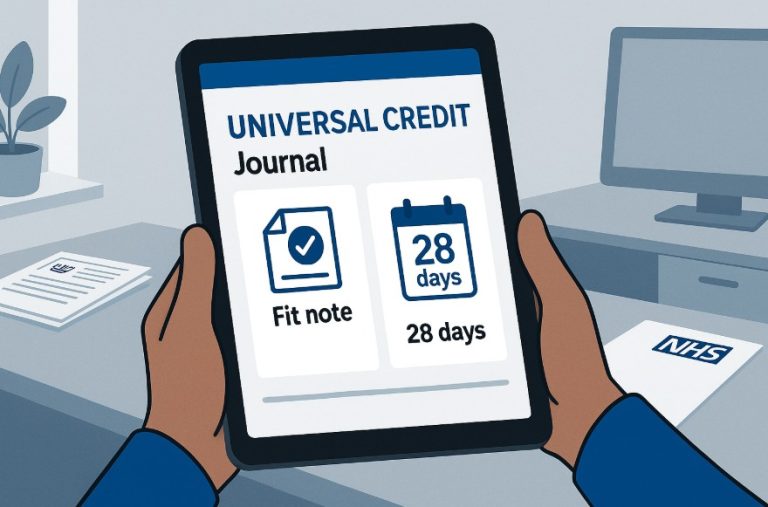Have you ever wondered if the Department for Work and Pensions (DWP) can access your bank account without your consent? With growing concerns over benefit fraud and increased surveillance powers, many UK residents are questioning how far the DWP can go when investigating claims.
This blog explores the legal boundaries, processes, and your rights when it comes to DWP bank account checks. Understanding how these investigations work is crucial to staying informed and protecting your privacy as a claimant.
Why Does the DWP Check Bank Accounts?
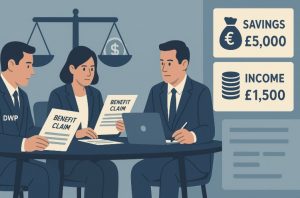
The Department for Work and Pensions (DWP) has a legal duty to ensure that benefit payments are accurate and only made to those who meet eligibility requirements.
As part of their efforts to prevent fraud and error, they may carry out financial investigations into claimants’ circumstances.
While not every claim is scrutinised, certain conditions or discrepancies can trigger a review of a person’s financial information.
These triggers often include income or savings that exceed limits for specific benefits, inconsistencies in reported data, or tips from the public.
Some reasons why the DWP might check your bank accounts include:
- The claimant has declared low income but is living above what appears affordable
- Unreported part-time or self-employed work
- A sudden deposit of a large sum of money
- Reports of cohabitation or shared income not declared
The goal of these checks is to maintain fairness in the system and to protect public funds. Inaccurate claims, whether intentional or accidental, can result in significant financial loss to the taxpayer.
How Does the DWP Check Bank Accounts?
The DWP follows a legal framework when accessing personal financial details. They cannot routinely monitor bank accounts without a justifiable reason.
However, if a claim is flagged for investigation, they may contact banks and other financial institutions under lawful provisions to request specific information.
The process usually begins with an internal assessment, where the DWP reviews the claimant’s file and cross-checks it with existing databases.
If discrepancies are found, they may open a formal investigation. At this point, the DWP can use powers granted under the Social Security Administration Act or similar legislation to collect necessary evidence.
Common Sources of Information Used by the DWP Include
- HM Revenue & Customs (HMRC) for employment and income data
- Banks and building societies for account balances and transactions
- Local authorities for housing and council tax records
- Credit reference agencies for financial patterns
Once these sources are accessed, the DWP will compare the financial data with the details declared in the benefit application.
Any unexplained funds, undeclared accounts, or discrepancies in spending behaviour could lead to further questioning or suspension of benefits.
Can the DWP Access My Bank Account Without My Permission?
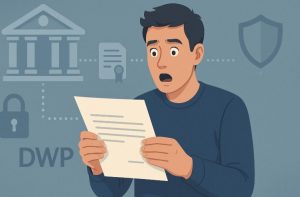
The DWP does not need your explicit permission to request certain information from your bank, but this access is not automatic.
It must be legally justified, and it usually occurs only when an investigation is already underway or there is significant suspicion of fraudulent activity.
Although you may not be asked for consent, the DWP must still follow a formal request process through the financial institution, which includes outlining the reason for the inquiry and what data they are seeking. In most cases, this is done through official anti-fraud powers.
You are likely to be informed once an investigation reaches this stage. Notification typically comes in the form of a letter detailing the nature of the concerns and requesting additional documentation or inviting you to an interview.
What Type of Financial Information Can the DWP See?
When the Department for Work and Pensions (DWP) initiates a formal investigation, they may seek access to financial data relevant to the claim in question.
While the DWP cannot freely browse your bank account or monitor your transactions without cause, they can request specific information from financial institutions if they have legal grounds to suspect fraud or misrepresentation.
The type of financial information the DWP can access is focused on verifying whether your current financial situation aligns with the eligibility requirements of the benefits you’re receiving.
This can include income, savings, investments, and patterns of financial behaviour that might contradict your declarations.
Financial Details Commonly Accessed by the DWP
- Bank account balances: This helps determine whether your savings exceed the permitted limits for means-tested benefits such as Universal Credit, Pension Credit, or Housing Benefit. Exceeding these limits can affect or disqualify your entitlement.
- Incoming transactions: Regular deposits from employment, freelance work, or private pensions that are not reported could indicate undeclared income. The DWP looks for consistency between reported income and bank deposits.
- Outgoing transactions: While less commonly scrutinised, certain outgoing payments, such as large purchases or frequent spending inconsistent with a declared low income, may raise questions.
- Joint account activity: If you share an account with a partner or family member, the DWP may review transactions to determine whether shared finances are being properly disclosed. This is especially relevant in cases where benefits are based on being single or living alone.
- Other financial products: The DWP may inquire about ISAs, Premium Bonds, or foreign currency accounts if they are relevant to your claim. These are often investigated when there is suspicion that capital is being hidden in non-standard accounts.
How the DWP Obtains This Information?
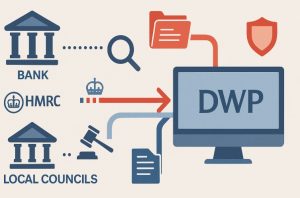
The DWP does not obtain this information automatically. They must make a formal request to the financial institution under anti-fraud powers.
The bank is only required to share data that is directly relevant to the investigation and typically limited to a specific timeframe.
If a decision-maker at the DWP believes there is strong evidence of a discrepancy, they may request:
- Statements showing deposits and withdrawals over a certain period
- Information on the account holders (especially for joint accounts)
- Confirmation of account ownership if undeclared accounts are discovered
It is important to understand that the DWP cannot demand unrestricted access to all your financial records. The information they seek must be justifiable, and the process must adhere to UK data protection and privacy laws.
Examples of Financial Data and Their Relevance to DWP Checks
| Type of Financial Information | Why the DWP Might Need It |
| Current and savings account balances | To check if savings exceed benefit thresholds |
| Wage or freelance income deposits | To identify unreported employment income |
| Regular third-party payments | Could suggest undeclared financial support from family or a partner |
| Pension or investment income | To verify full income disclosure on the claim |
| Joint account spending patterns | To assess whether shared living arrangements are being correctly reported |
Limitations on DWP Access
Even during an investigation, the DWP cannot:
- View your account in real time
- Access private banking apps or logins
- Monitor your spending on an ongoing basis
- Check accounts that are not linked to the benefit claim without evidence
Their access is limited by law to what is considered necessary and proportionate. If they exceed these limits, it may constitute a breach of your data rights, and you can challenge such actions.
Understanding what type of financial data the DWP can access, and under what circumstances, is essential for staying compliant and protecting your rights as a claimant.
What Legal Rights Do You Have During a DWP Investigation?
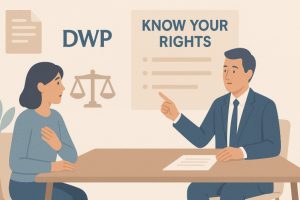
Claimants under investigation by the DWP are protected by legal rights and data protection laws. The DWP must act within the bounds of the law, ensuring that their actions are necessary, proportionate, and justified.
You are entitled to know the reason for the investigation and what information is being gathered. If you are invited for an interview under caution, you have the right to be accompanied by a legal representative or adviser.
It is also your right to request access to any information held about you under the Data Protection Act. If you believe that your personal data has been misused or accessed without cause, you can lodge a formal complaint with the DWP and escalate it to the Information Commissioner’s Office (ICO) if necessary.
Your Rights During a DWP Investigation
| Right | Description |
| Right to be informed | You must be told if an investigation is open |
| Right to representation | You may bring a solicitor or advocate to interviews |
| Right to data transparency | You can request to see what data the DWP holds about you |
| Right to appeal or dispute | You may challenge decisions or interpretations of data |
Understanding your rights can help you respond appropriately and confidently if your benefits are under scrutiny.
What Are the Consequences If You’re Found With Undisclosed Income?
Failing to report changes in financial circumstances or deliberately hiding income can lead to serious consequences. The severity of the outcome will depend on whether the mistake was intentional and how much was overpaid.
If it’s found that the claim was incorrect due to negligence, the DWP may recover the amount through deductions from ongoing benefits. In cases where fraud is suspected, the claimant may be subject to civil penalties or criminal prosecution.
Potential outcomes include:
- Repayment of benefits that were wrongly received
- Fines or penalties for failing to disclose income
- Court proceedings leading to possible criminal charges
- Disqualification from claiming certain benefits in the future
Investigations are handled on a case-by-case basis. In less severe situations, individuals may be given a chance to explain or correct the error before further action is taken.
How Can You Protect Yourself From Unfair DWP Scrutiny?
The best way to avoid investigations or penalties is to ensure full transparency when dealing with the DWP. Claimants are responsible for keeping their benefit claims up to date and accurate.
Here are some measures you can take:
- Report any changes in savings, income, or household status as soon as they occur
- Keep all financial documents such as bank statements and wage slips
- Review your benefit claim forms carefully before submission
- If unsure about eligibility or rules, seek advice from Citizens Advice or a welfare adviser
Being proactive and honest helps reduce the chances of facing unnecessary investigations. It also ensures that any errors can be resolved early, avoiding more serious repercussions.
How Are Privacy and Data Protection Laws Affecting DWP Powers?
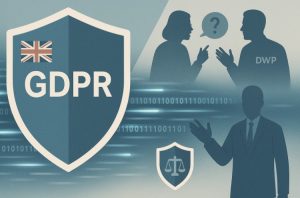
There is an ongoing public debate regarding the balance between fraud prevention and individual privacy.
Recent proposals to extend the DWP’s powers to monitor bank accounts have sparked concerns from civil rights groups and legal experts.
Under data protection law, any access to personal data must be lawful, fair, and limited to what is necessary.
The GDPR and UK Data Protection Act impose strict conditions on how government bodies like the DWP can handle private financial information.
Privacy campaigners argue that increased access to banking data without specific cause could breach these laws.
The report by Disability Rights UK outlines how these practices might infringe on individuals’ right to privacy and create a climate of surveillance around benefits claimants.
If new laws are introduced to extend DWP powers, they would need to be balanced with transparent oversight and clear legal safeguards to ensure fairness.
Conclusion
While the DWP cannot freely access your bank account, they do have legal powers to request financial data when fraud is suspected.
These powers are not used randomly but are driven by evidence or irregularities in your benefit claims.
Understanding your rights and obligations as a claimant is key to protecting yourself. Keep your financial records transparent, update the DWP with any changes, and seek guidance if you’re unsure.
The DWP’s role is to ensure fairness in benefit distribution, and with responsible claiming and transparency, most individuals have nothing to worry about.
FAQs About DWP Bank Account Checks
Can the DWP check joint bank accounts?
Yes, the DWP can review joint accounts if they are relevant to your benefit claim, particularly if you live with a partner or family member whose income may affect your eligibility.
Will the DWP notify me before checking my bank account?
Typically, you’ll be informed if you’re under investigation, and you may be asked to provide financial documentation or attend an interview.
Can the DWP access my bank records without telling me?
In most cases, no. The DWP must follow due legal process and can only access bank details with reasonable cause under anti-fraud laws.
What benefits are most commonly investigated?
Universal Credit, Housing Benefit, and Pension Credit are among the most closely scrutinised due to income and capital thresholds.
How much savings can I have before the DWP investigates?
For means-tested benefits, savings over £6,000 may affect eligibility. Investigations may begin if your savings exceed thresholds without being declared.
Can I refuse to give the DWP my bank details?
If requested during an investigation, you are legally obligated to comply. Refusal may impact your benefit entitlement and could lead to penalties.
What should I do if I think the DWP accessed my data unlawfully?
You can file a complaint with the DWP and escalate the matter to the Information Commissioner’s Office if necessary.
Related Articles:

